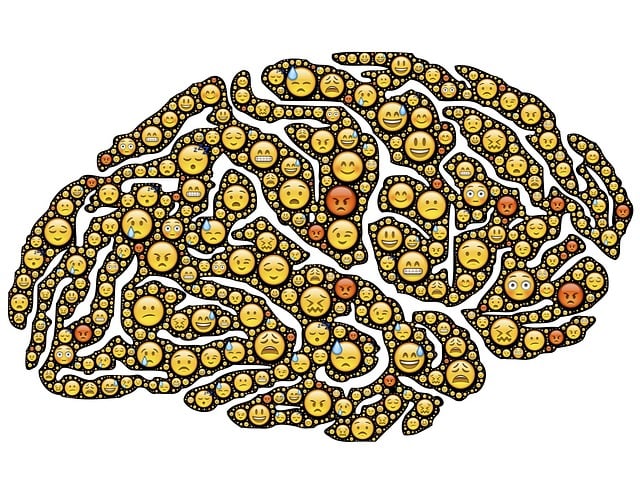Understanding Mental Health Data Collection is vital for effective Parker Relationship Issues Therapy (PRIT). Standardized tools and questionnaires gather comprehensive data on individuals' psychological states, behaviors, and experiences. Data analysis identifies patterns of distress or growth, aiding in diagnosis and personalizing treatment plans that integrate Crisis Intervention Guidance and Stress Reduction Methods within a culturally sensitive context. By examining numerical trends and qualitative insights from surveys, session notes, and tailored outcome measures, therapists refine risk management planning, incorporate culturally sensitive practices, and tailor interventions to meet the unique needs of each family, ensuring PRIT is both evidence-based and personalized for optimal outcomes.
Mental health data analysis is a powerful tool for enhancing therapeutic outcomes, especially in innovative approaches like Parker Relationship Issues Therapy (PRIT). This article explores the intricate process of understanding and interpreting mental health data. We delve into the collection methods, highlighting the significance of accurate record-keeping. Subsequently, we analyze how data interpretation can optimize PRIT, personalizing treatments to address relationship challenges effectively. By leveraging data, therapists can make informed decisions, ultimately improving client outcomes in this specialized therapy domain.
- Understanding Mental Health Data Collection and Parker Relationship Issues Therapy
- Analyzing and Interpreting Data to Enhance Therapy Outcomes
- The Role of Data in Personalizing and Effectively Delivering Parker Relationship Issues Therapy
Understanding Mental Health Data Collection and Parker Relationship Issues Therapy

Understanding Mental Health Data Collection is a foundational step in effective Parker Relationship Issues Therapy. This involves gathering comprehensive data on individuals’ psychological states, behaviors, and experiences, often using standardized tools and questionnaires. By analyzing these datasets, mental health professionals can identify patterns, trends, and key indicators of distress or growth. This process not only aids in diagnosing but also guides personalized treatment plans for individuals seeking support.
Parker Relationship Issues Therapy, as a specialized approach, leverages this data to address interpersonal challenges within a cultural context. It integrates Crisis Intervention Guidance, providing immediate support during acute crises, while simultaneously employing Stress Reduction Methods to teach coping strategies for long-term resilience. Cultural Sensitivity in Mental Healthcare Practice is paramount, ensuring that therapeutic interventions are tailored to respect and incorporate individuals’ unique cultural beliefs and backgrounds.
Analyzing and Interpreting Data to Enhance Therapy Outcomes

Analyzing and interpreting mental health data is a crucial step in enhancing therapy outcomes, especially for complex issues like Parker Relationship Issues Therapy. By delving into numerical trends and qualitative insights, therapists can gain valuable perspectives on patient progress, treatment effectiveness, and potential areas of improvement. This process involves meticulous data collection, often incorporating surveys, session notes, and outcome measures tailored to specific therapeutic approaches.
For instance, in the context of Parker Relationship Issues Therapy, analyzing communication patterns within families could reveal recurring dynamics that hinder emotional healing processes. This data-driven approach allows mental health professionals to refine their risk management planning, incorporate culturally sensitive practices, and tailor interventions to address the unique needs of each family. Through this method, therapists can ensure that their strategies are not only evidence-based but also aligned with the diverse cultural backgrounds and specific emotional healing requirements of their clients.
The Role of Data in Personalizing and Effectively Delivering Parker Relationship Issues Therapy

The integration of mental health data analysis plays a pivotal role in revolutionizing therapeutic approaches, particularly when it comes to Parker Relationship Issues Therapy (PRIT). By harnessing the power of data, therapists can gain valuable insights into individuals’ unique challenges and tailor their treatment strategies accordingly. This personalized approach ensures that PRIT is not just delivered but effectively executed, catering to each client’s specific needs.
Data-driven analysis enables therapists to identify patterns in relationship dynamics, emotional triggers, and coping mechanisms. This information is crucial for developing a comprehensive understanding of an individual’s mental health landscape. Moreover, it facilitates the creation of customized self-care routines, fostering better emotional regulation. In line with broader Mental Health Policy Analysis and Advocacy efforts, such personalized therapy can lead to improved treatment outcomes and enhanced well-being, ultimately contributing to more robust mental health initiatives.
Mental health data analysis plays a pivotal role in enhancing therapeutic outcomes, particularly in innovative approaches like the Parker Relationship Issues Therapy. By interpreting collected data, therapists can tailor treatments to individual needs, improving patient engagement and overall well-being. Leveraging data allows for more effective personalized therapy, making it a key component in navigating complex mental health challenges, especially within the context of Parker Relationship Issues Therapy.














